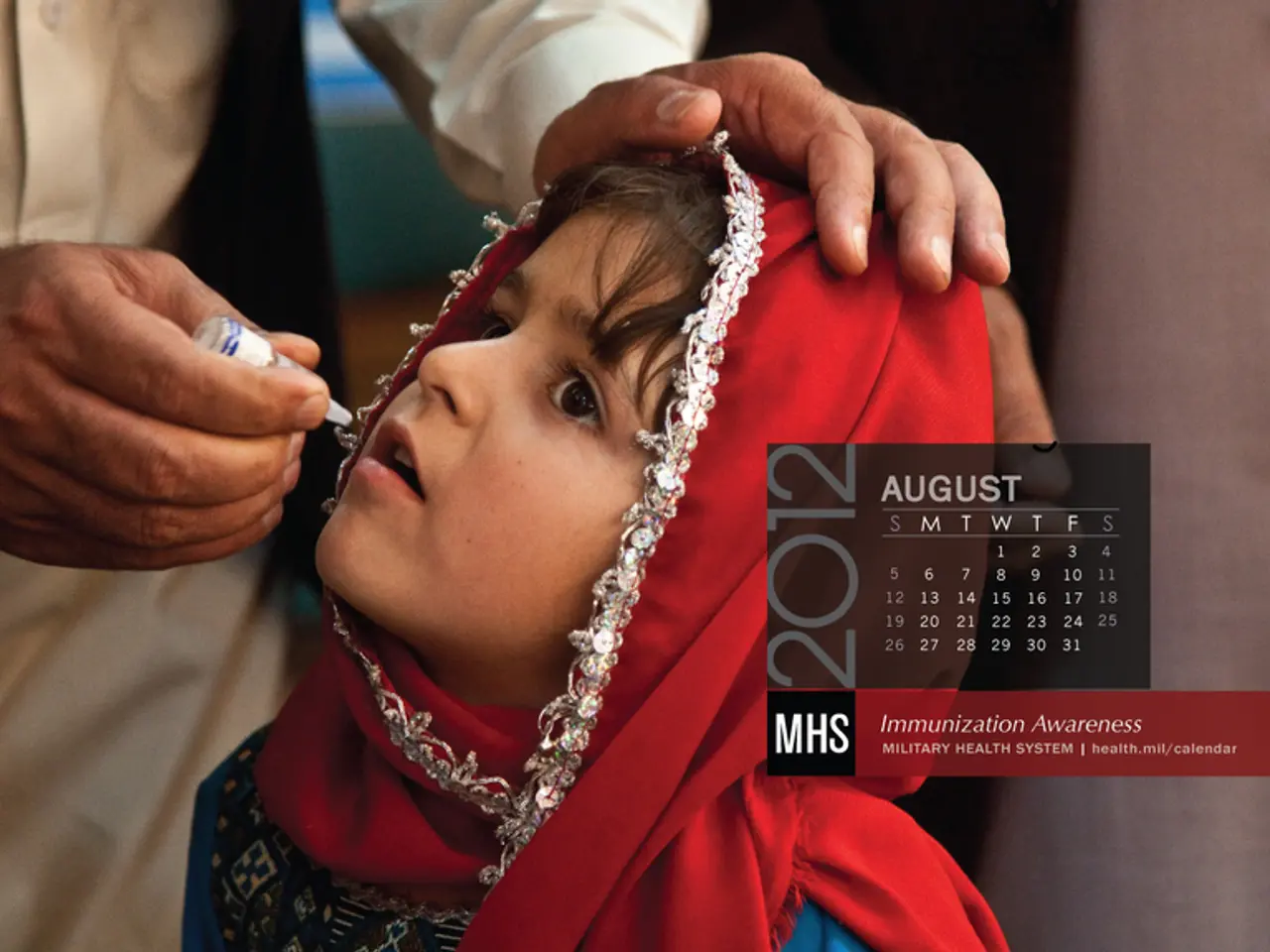Infant's Initial Twelve Months: Immunization Blueprint in Nigeria
The core infant vaccine schedule in Nigeria begins at birth, with the BCG vaccine for tuberculosis, oral polio vaccine (OPV), and the first dose of Hepatitis B vaccine. This is followed by a series of vaccinations starting at six weeks, which include doses of DPT (diphtheria, pertussis, tetanus), Hib (Haemophilus influenzae type b), PCV (pneumococcal conjugate vaccine), and additional OPV doses.
At nine months, the baby receives the measles vaccine and Yellow Fever vaccine. Recently, a malaria vaccine has been introduced, with a schedule of four doses starting at five months, followed by doses at six and seven months, and a booster dose between 15 to 23 months or later if delayed.
Further boosters for DTP-containing vaccines are given between 12 to 23 months, 4 to 7 years, and 9 to 15 years to maintain immunity.
Addressing common misconceptions surrounding vaccinations is crucial in promoting vaccine acceptance. It is essential to understand that vaccines undergo rigorous testing to ensure their safety and effectiveness. They are carefully designed to stimulate the immune system without overwhelming it.
Before your baby receives any vaccines, it is crucial to inform the healthcare provider about any allergies or previous adverse reactions your baby may have had to vaccines. It can be comforting to have someone with you for support during the vaccination process.
The pneumococcal conjugate vaccine is crucial in preventing pneumococcal diseases, such as pneumonia, meningitis, and bacteremia. At fourteen weeks, the baby receives the same vaccines from the previous rounds. At ten weeks, the baby receives the rotavirus vaccine, PCV, and OPV.
Proper storage and administration of vaccines is essential to ensure their effectiveness. Vaccines play a crucial role in protecting infants from infectious diseases during their first year, helping Nigeria aim to reduce preventable diseases through these vaccinations, supported by agencies like WHO, UNICEF, and Gavi.
It is important to follow the recommended vaccination schedule to ensure that your baby receives the necessary protection at the right time. Asking the healthcare provider to explain the potential side effects of each vaccine is also important. Coverage challenges exist due to high rates of home births, where timely Hepatitis B birth dose vaccination is difficult; efforts focus on improving facility births and community-based vaccination to increase uptake.
- Nurturing mental health and overall well-being of kids is an important aspect of family-centered parenting, which includes prioritizing their health and safety.
- In order to foster a lifetime of good education, parents should encourage positive behavior and supportive learning environments from an early age, even during baby stages.
- During the initial years of children's lives, it's crucial to follow the recommended vaccination schedule such as in Nigeria, where vaccines like BCG, Hepatitis B, and OPV are administered from birth.
- Exploring science and health-and-wellness topics with children can facilitate their understanding about the importance of vaccinations and how they work to keep them healthy.
- Maintaining immunity against diseases like diphtheria, pertussis, tetanus, and polio requires regular boosters, which are given at different stages of childhood — from toddlerhood to teenage years.
- As kids grow older, it is essential to discuss any concerns or questions about vaccinations with their healthcare providers, as understanding the potential side effects and benefits of each vaccine can help in making informed decisions for their future health.




